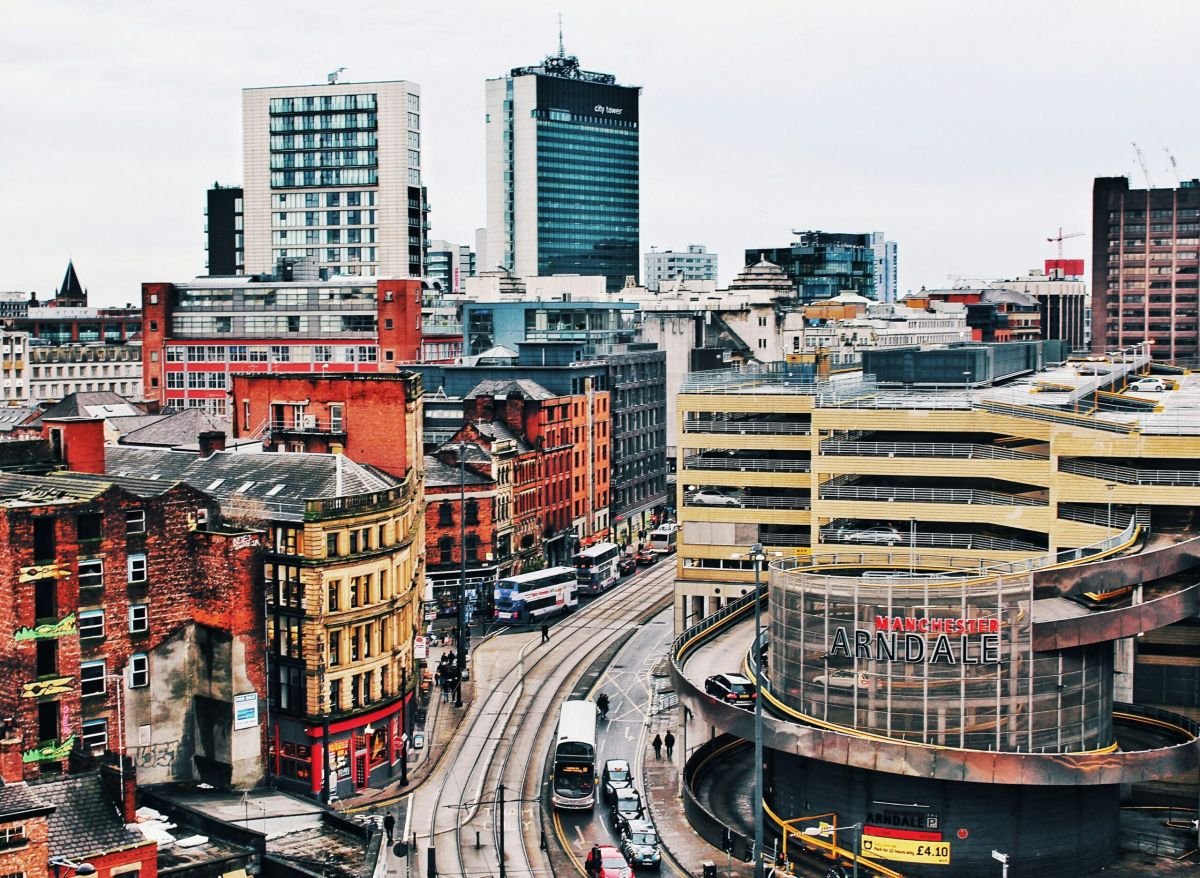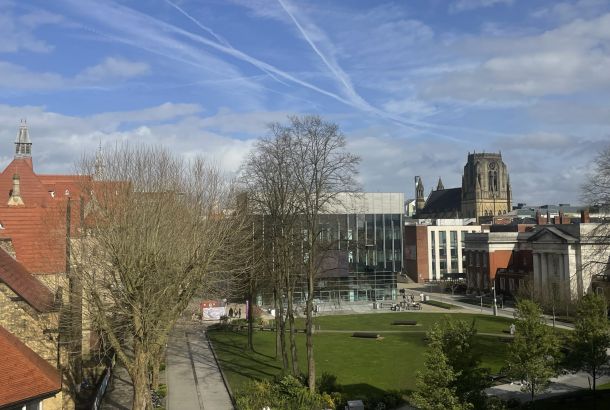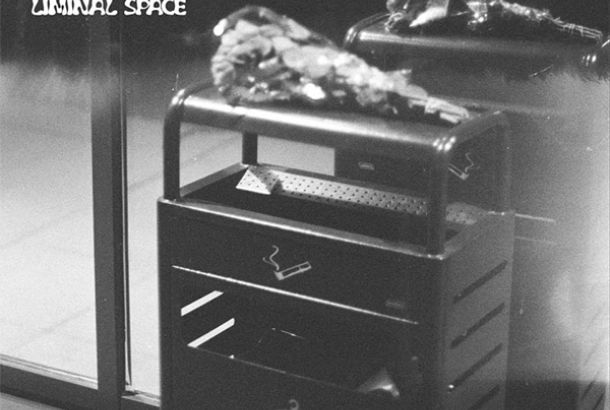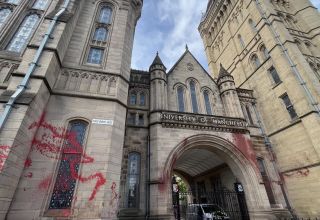Stick or twist: Why do students choose to stay in the south of Greater Manchester?

When I accepted my UCAS offer for the University of Manchester, there was only one place I wanted to live: Fallowfield. The student suburb in the south of the city was to me what Smirnoff Ice is to a 17-year-old. Come to think of it, there’s not that much of a difference between the two: both offer frivolous fun at the price of misguided plotting and scheming.
Against the other two options of accommodation the University offers – one being city halls, a short walk from Manchester’s hellhole epicentre: Piccadilly Gardens. The other being Victoria Park, a leafy area filled with stroller-pushing families – Fallowfield appears like a beacon of light for baggy jean-wearing, headphone-donning, nicotine-obsessed soul seekers.
An answer to “So, why Fallowfield?” can be a tough one to explain. The streets are filled with disposable vapes, which (thanks Rishi!) will soon become cultural relics. The rammed Magic Buses behave like the Night Bus from The Prisoner of Azkhaban, and the aroma of chicken and chips wafts from the institutions with a proud anti-Michelin star ethos. Yet, to the 15,000 inhabitants of this social experiment of an area, it is home. Many arrived as students; a large number never leave.
Greater Manchester is made up of ten metropolitan boroughs. The City, which Fallowfield is part of, sits smugly at the beating heart of the region, certain of its own importance, with the nine other districts – Bolton, Bury, Oldham, Rochdale, Salford, Stockport, Tameside, Trafford, and Wigan – representing the supporting organs. Yet, to a student, the further north from Fallowfield you travel, the more it seems like the districts are suffering from poor blood supply and impending organ failure.
The first time I ventured into the outlying regions – I can’t really count Salford as I’d only passed through it on delayed Avanti West Coast services – I felt like I’d stumbled on the set of a bleak, dystopian film. You know, the ones which have an orange-tint to the scene, with the actors stumbling around the streets in a daze. After I’d left, I had no desire to return; the event being Parklife Festival in Higher Blackley, the annual post-exams celebration which beckons SHEIN’s most frequent shoppers to bop in the rain to Fred Again… and Disclosure.
The three universities clustered around the Oxford Road corridor – the University of Manchester, Manchester Metropolitan University, and the Royal Northern College of Music – churn the majority of their students into the city, and its south. And whilst that may explain why students come to south Manchester, what is it that makes them stay?
When I asked students about their movements, it became evident that, for many, the student experience centres around Fallowfield and the city centre. The “general buzz of the atmosphere” and “plenty of things nearby” were key factors – despite the fact the area is also characterised as “run down,” “noisy,” and “messy.”
Those same students also admitted that they had explored very little of Greater Manchester. Seeking to find the answer as to why there appears so little interest to discover the places which make up the wider region, perhaps it lies in the headlines that are thrown up by a casual Google search of Rochdale, Bury, or Oldham. Grooming, paedophile rings, death, poverty, and ‘criminal record check’ splash across the screen. News sensationalism and Google’s algorithm playing to the fearmongering crowd perhaps, but it does little to entice students to leave the comfort blanket of Fallowfield and explore – let alone live – in the outlying districts.
This creates a constant cash flow to the south, as student life and expenditure concentrates in the bustling areas lining the Oxford Road corridor. As thoughts turn to a life beyond university – interjection of ‘does life end at university?’, a common cycle of despair – the further we head south, enticed by the lifestyle and prosperity of Didsbury, Trafford, and Altrincham. The fact that there is a clear disparity in house prices – the average property in Didsbury is £372,000 compared to £204,000 in Rochdale – does little to correct this aspirational drift.
South Manchester and the city centre have become caricatured as a place where ‘young adults’ progress from trying their hand at decks after a lecture while wearing Carhartt jeans a size too big, to – after gaining a few years of life experience – the land of Premier League footballers and micro-influencers, oat milk flat whites clutched in one hand and a dachshund in the other. The areas embody the ‘cool’ – or if you’re millennial, ‘hip’ – lifestyle. Nonetheless, it appears to act as a comfort blanket for graduates, who – despite their mountainous student debt and sure knowledge that they will get better value for money in the north – cling to the familiarity, affluence, and charm of the south.
Of course, those same qualities can be found in pockets of the northern districts; places like Prestwich, Worsley, and Ramsbottom are vibrant and characterful. They should be equally as appealing places for graduates to live in. But, the clear economic divisions within the city region – with one in three primary school-age children living below the poverty line in Bury alone – highlights the fact that much work needs to be done to close those gaps in perception.
Greater Manchester is an economic powerhouse; its economy is the second-largest outside of London, standing at £78.7 billion, and has one of the biggest job growth rates, with 73.6% of people aged 16-64 employed. Yet, desirable graduate jobs remain in the city and in the south. Out of my conversations with final-years who planned to work and live in Manchester, a grand total of zero of them mentioned applying or looking for jobs north of the city centre. The south remains students’ area of operation; the sense of familiarity and connection – from student to grad, or bus to tram – keeps graduates gravitating towards the south.
The starting point must be the ‘bread and butter’ issues affecting all Manchester residents. Mayor Andy Burnham and Greater Manchester Combined Authority have embarked on the “Places for Everyone” project, which seeks to ‘level up’ – a buzzword synonymous with the north – nine of Greater Manchester’s districts. The long-term aim is to provide affordable housing, industrial space, and sustainable growth across the city region. It’s a step forward for Mancunians. But how many of them will be enticed into those regenerated areas will prove whether pre-existing, post-industrial regional inequalities (and prejudices) can be overcome.
Perhaps Greater Manchester’s own divisions are a microcosm for the country, which both Burnham’s mayoral regime and political parties in general have so far been unsuccessful in resolving. While students may be perpetuating this divide, the causes are deep-set, reinforced by our own student experiences and – despite the best efforts of the GMCA – will not be easily resolved.







